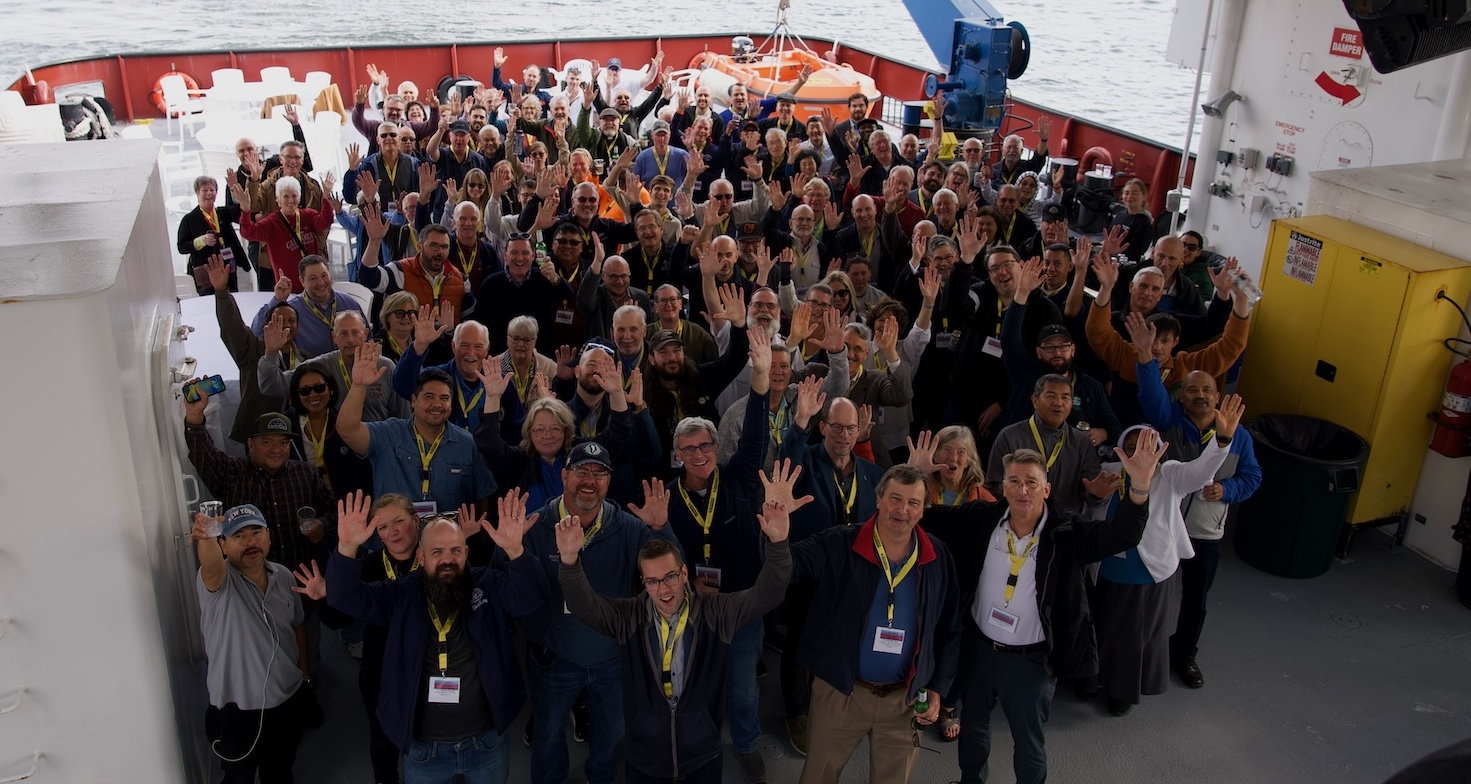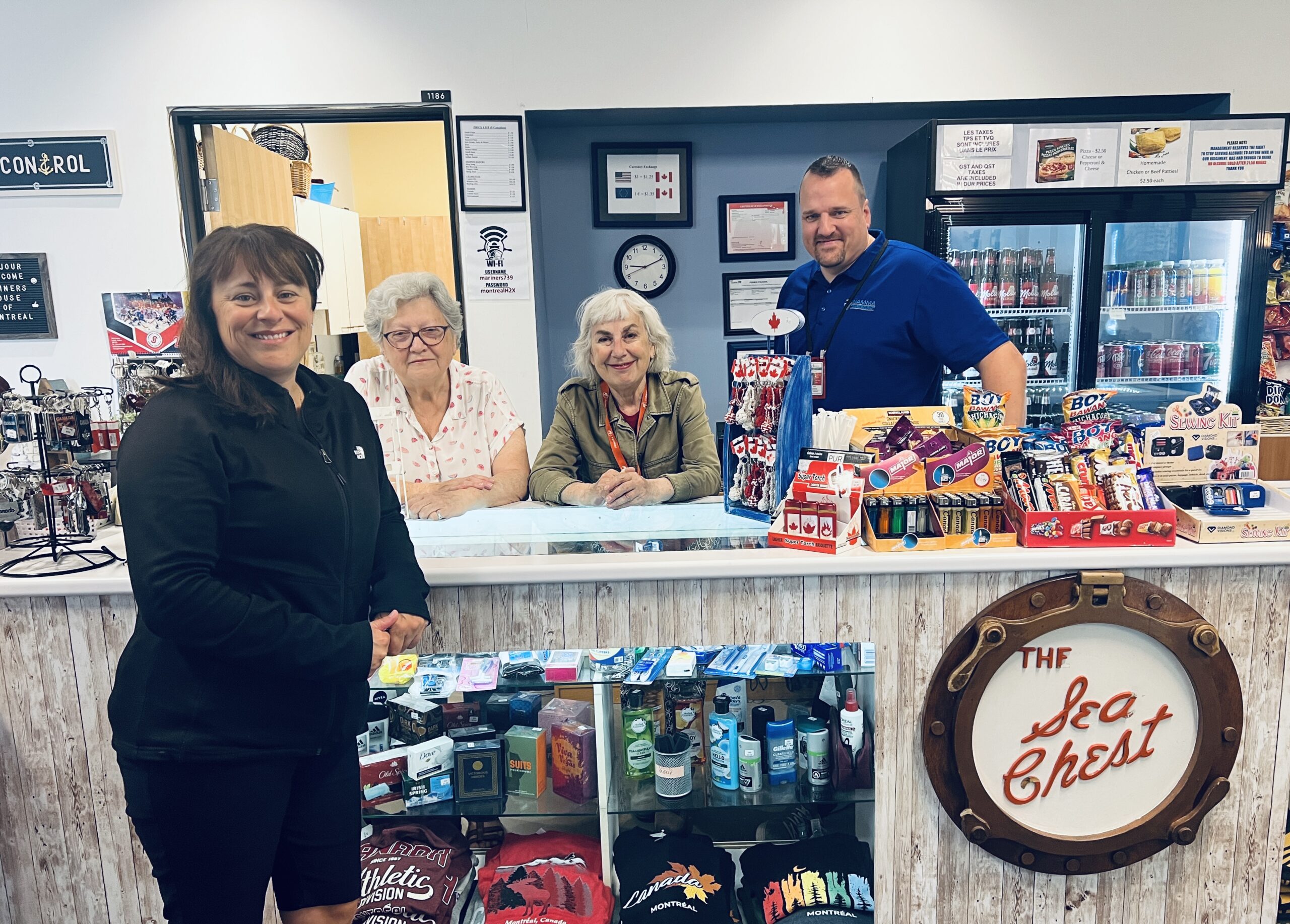By Maia VanderMeer, Banner
It’s Friday afternoon, July 24, and Michelle DePooter-Francis is on her way to Walmart to pick up items requested by seafarers restricted to their ships. DePooter-Francis is lead chaplain of the Ministry to Seafarers, a mission in the Port of Montreal, and a commissioned pastor with the Christian Reformed Church. On this day she says the ships in Montreal’s harbour come from Indonesia, Montenegro, Ukraine, Russia, Croatia, India, China, and the Philippines and that the shopping list includes chocolate, socks, a PlayStation, and toothpaste—all things to bring comfort when an unexpected pandemic has kept you on board four or five months past the end of your contract.
“Most crew members haven’t been able to get off the ships since March,” says DePooter-Francis. “In many cases, it’s just now that some of them are able to go home.” The uncertainty takes a mental toll on seafarers: with no clear date to return home and feeling anxious for their families, many are struggling with depression.
Normally the Ministry to Seafarers offers those working on ships a home away from home in the harbor, as well as personal visits on board ships. Now visits happen at the top of the gangway. Even though it’s limited, “that personal contact and being able to have at least a bit of a conversation, to show people that we’re here and available, and if they need to talk they still have our contact—that’s extremely important,” said DePooter-Francis. She shares this work with assistant chaplain David Rozeboom, administrator Patricia Sarazen, volunteers, and interns.
On July 6, the center reopened with extra measures in place to be as safe as possible for seafarers; by the end of July, DePooter-Francis said crew from only a few ships had come. While Transport Canada now permits limited time on shore for crew members, many companies or captains will not allow it. Crew members are also reluctant, afraid to put the whole ship at risk should they become infected.
Earlier in the pandemic when restrictions on movement encouraged virtual connection, DePooter-Francis joined “Chat to a Chaplain,” an initiative of the International Christian Maritime Association and the Anglican international ministry Mission to Seafarers. She is one of about 25 chaplains from around the world available to chat online with struggling seafarers and with worried friends and families of the ship crew. Embedded on various websites and promoted through social media, the chat box was launched in April.
DePooter-Francis is especially grateful for the recent creation of the Canada Seafarers Welfare Board, a coming together of ship owners, unions, government agencies, and seafarer welfare providers—like the Ministry to Seafarers. The creation of the board, which is a requirement of the 2006 Maritime Labour Convention, has been in the works for two years. “This whole pandemic has really put into perspective the fact that we all need to get on the same page,” DePooter-Francis said. She participated, as one of the representatives from seafarer welfare providers, in the board’s recent conference calls.
About the Author: Maia VanderMeer is a freelance news correspondent for The Banner. She lives in Whitby, Ont.
Image: Ministry to Seafarers intern, Eleni, is ready for a ship visit. Image used with permission Montreal Ministry to Seafarers.
—Reprinted with permission from The Banner (July 31, 2020; the banner.org/news), © 2020, Christian Reformed Church in North America. Not allowed for sale in any shape or form. All rights reserved worldwide.





